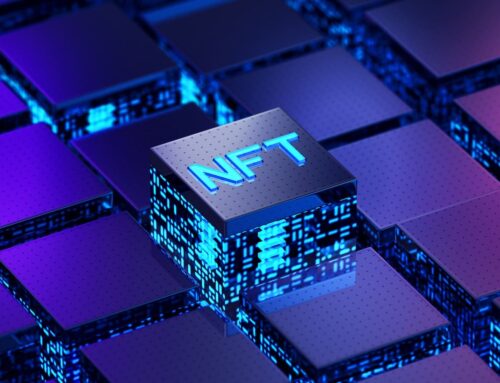Deepfake technology suggests a wide range of audiovisual content, thoroughly altered through the utilisation of artificial intelligence. Hence the origin of the compound term, made up of the umbrella denomination ‘deep learning’, combined with the word ‘fake’. The creative process of deepfake technology differs from the generation of brand new, original content. The former focuses on a remarkably meticulous digital alteration of authentic content, to the point that it not only flawlessly depicts the facial and physical characteristics of people that are, in reality, absent from the authentic content, it also accurately clones their voices, too. The results are hyperrealistic to the point that, regardless if it is a mere photo or a particularly lengthy video, users will not be able to tell whether the content is genuine or digitally altered. Artifacts can also be integrated into a deepfake production, making the identification of the content’s genuinity even trickier.

With the term gaining significant popularity back in 2017, prior to being referenced by Netflix’s dystopian TV series ‘Black Mirror’ in an unusually entertaining effort to warn viewers about the potential threats which may occur following a possible massive expansion, deepfakes have managed to earn their presence in pop culture. It is quite noticeable how, in the past few years, deepfakes have strikingly contributed to several viral creations of globally renowned artists of the likes of Kendrick Lamar, Paul McCartney, and Kanye West. And while the controversy about deepfakes’ potential risks and implications, legal status, and ethical issues keeps intensifying, a more proper and moral use of deepfakes has also been on the rise, especially when it comes to sectors such as the entertainment industry, as much as marketing and advertising in every possible form.
While the future of deepfakes in digital marketing and business development in general is projected to be subject to a series of severe legal restrictions, let us inspect a few potential upcoming integrations of deepfakes that might transform the global marketing landscape once and for all.

A brand new era for influencer marketing
When the influencer marketing campaign performance of several brands is reflected in evidently higher key metrics than the same brands’ organic content, there is no doubt that influencer marketing will continue to be in the spotlight of the digital world for years to come, as an essential strategic aspect of various brands, regardless of their size and financial status. This assumption, however, does not guarantee that influencing activities will continue to be implemented in the exact same form. A potential shift might be observed in two ways, which are, for the record, diametrically different from one another. The first one would signify an entirely new perspective for influencer marketing on a global extent, as multiple brands are expected to be granted the opportunity to collaborate with countless influencers, regardless of their physical presence or lack thereof and, consequently, without having to generate audiovisual content from scratch.
Replacing original content with deepfakes may result in making collaborations with influencers from all over the globe easier than ever, while, at the very same time, eliminating all relevant photography and videography costs, as much as operating and travel expenses. Subsequently, a market tendency of deepfake influencers in the near future will definitely not come as a surprise. On the other hand, however, global brands of the likes of Unilever-owned Dove have already denounced toxic influence. That same brand did use deepfake technology, only to take a stand against the non-realistic beauty standards that are constantly being promoted by influencers. What this might mean for deepfake technology and whether equally impactful brands will follow Dove’s lead, still remains to be seen.

Emphasising on personalisation
The single most prevalent tool to enhance brand awareness and brand image through the deepfake synthesis engine, is to personalise an ad campaign, in a fashion that it best reflects the target audience’s needs and wants, thus resonating with the brand’s customer avatar in the most effective way possible. Besides, content personalisation is a quest that is recommended for literally any brand, regardless of size, demographics and preferred marketing techniques. It is the cornerstone of a holistic and meticulous strategy, one that focuses on approaching the audience by using a variety of marketing activities.
Like every other advertising technique based on deepfake technology, personalised ads that integrate deepfake technology are thought to be arguably faster and simpler to generate, while maintaining a relatively low-cost operating structure, as opposed to traditional audiovisual content creation. Simultaneously, segmenting one’s content according to their audience is also a great option, especially when it comes to geo-targetting. Directing slightly altered versions of the same type of content towards different segments of one’s audience is considered to be an undeniably intelligent way to enhance an advertising campaign’s efficiency. A dynamic combination of deepfake-infused personalised ads and celebrity endorsements has notably been tried by a few brands. The contribution of celebrities of the likes of Devid Beckham and Cara Delevingne has undoubtedly optimised the relevant ad campaigns’ results.

Content differentiation in an omnichannel strategy
Research indicates that, within the next 5 to 7 years, a proportion of around 90% of all online audiovisual content, will be constructed thanks to deepfake technology. As the world is in the midst of its gradual tradition into the Metaverse, brands of various sizes are expected to attempt to benefit from a such shift. Transforming every vision and idea into a wide series of genuine, interactive and, more importantly, eye-catching and attention-grabbing advertisements, is projected to become simplified, as it begins to integrate synthetic media. A much anticipated outcome of the huge capabilities offered by the deepfake synthesis software, however, is the intensification of an already ruthless market competition, thus leading several brands that are antagonising one another into what resembles a digital battlefield. Even within the Metaverse, though, content is king.
The most prominent manner in which a brand can stand out, therefore, is to integrate the countless possibilities offered by deepfake technology into its content. It is crucial that the latter ought to become more unique and authentic than it ever was, so as to perfectly resonate with each brand’s customer avatar. On the bright side, the absolute necessity of maintaining an omnichannel digital marketing strategy will be significantly facilitated. That is because, largely by virtue of deepfake technology, capitalising on audience segmentation will become simpler to achieve, as will the ability to generate and tailor one’s content according to each social medium’s specs and best practices.




